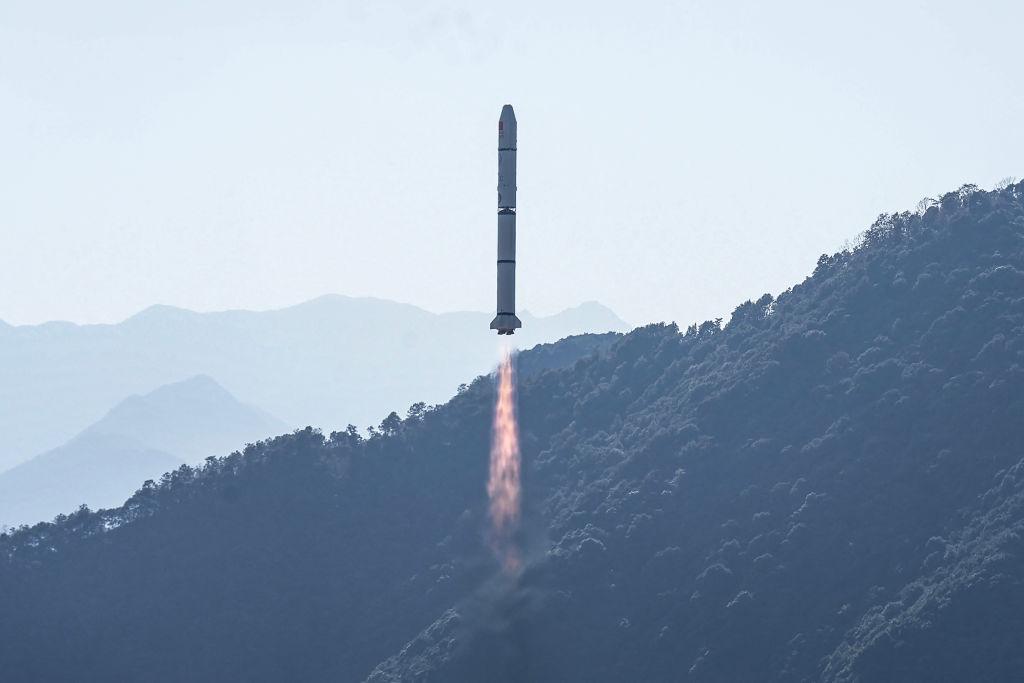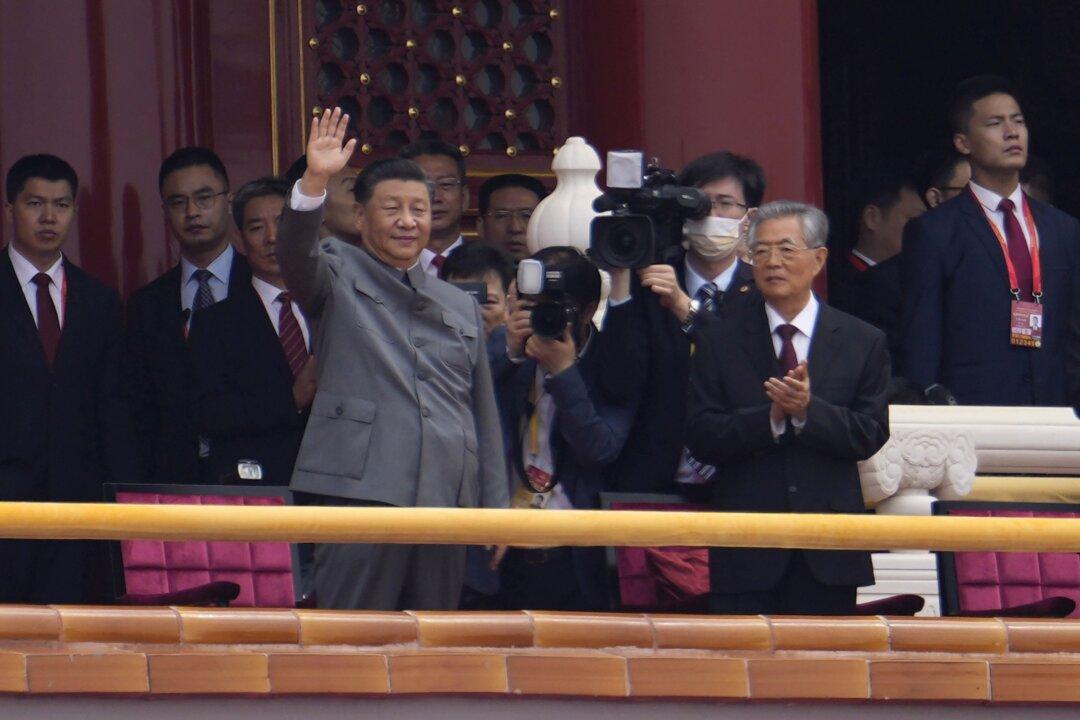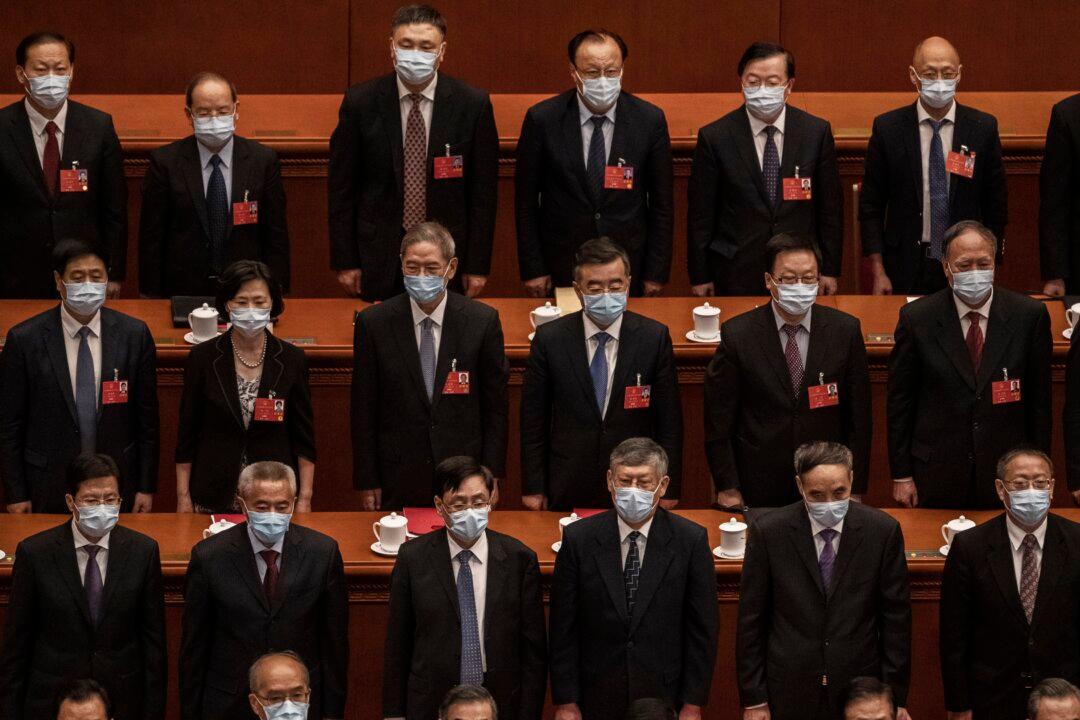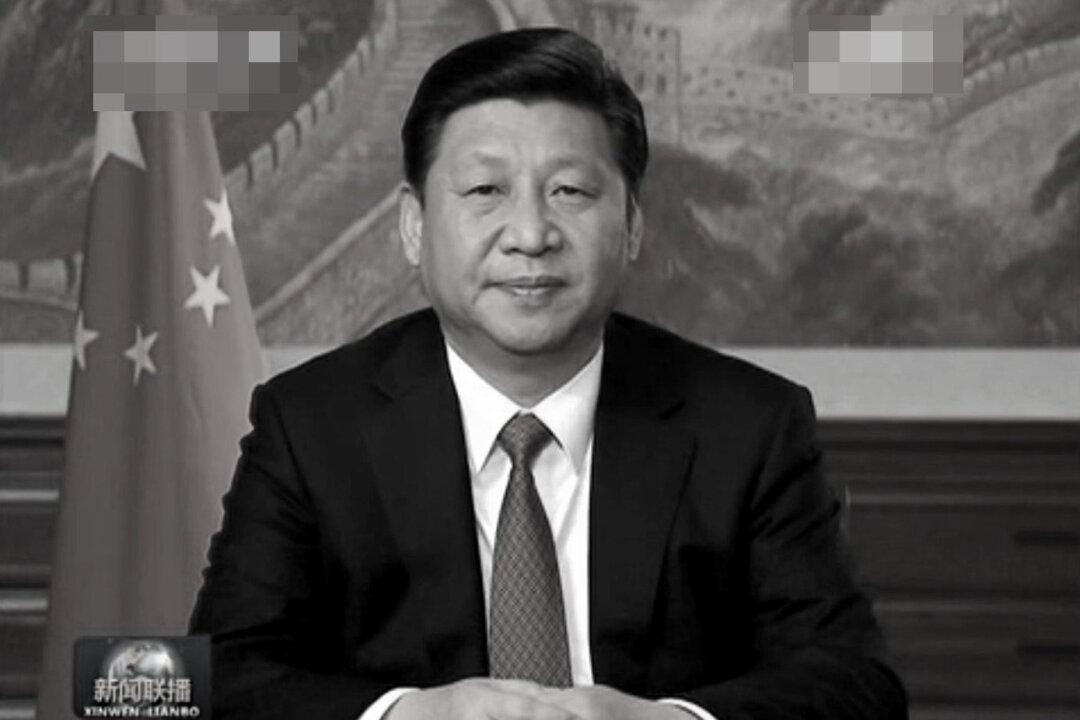Recently Chinese leader Hu Jintao was pressured on the issue of re-evaluating Mao Zedong’s value to China, Hu said, “It’s a big task left by history, an important issue of concern inside the Party, as well as in the society. Re-evaluation is necessary, but need to create a suitable environment.”
New Direction on Mao’s Thirtieth Death Anniversary
September 9 is the thirtieth anniversary of Mao’s death. The regime did not hold any activities. Initially, a commemorative conference for 200 attendees was supposed to be held at the Central Party School on Sept 8, involving organizations including the Chinese Communist Party History Research Office, Party Documentary Research Office, State Organs Working Committee. The conference was suddenly cancelled by Party Central Committee Office, with the reason of “not enough time to prepare.”
In Changsha City, Hunan Province, a commemorative forum for 3,000 attendees was planned in the Hunan Provincial Party School, the organizer was Hunan Provincial Party Committee, and the planned key speakers included Mao’s previous staff, guards and relatives. The forum was also cancelled at the last minute on September 4, no reasons were given.
Party Central Committee and Hu Were Pressured
The reason for the cancellations is that the CCP Central Committee and Hu Jintao received pressure from powerful second generation Party members, the renowned second generation of democratic party figures (note), and renowned members from academia. They asked the Central Committee and Hu to make a new and durable re-evaluation of Mao.
The second generation of powerful Party members include Wan Li, Song Ping, Li Desheng, Peng Chong, Gu Mu, Zheng Tianxiang, Yang Baibing, and Liu Fuzhi, etc. While they were gathered in Beidaihe for their summer holiday, they co-signed a letter to the Political Bureau. In the letter they raised several requirements. One important topic in the letter was to re-evaluate Mao. They expressed in the letter that they were anxious to see the Party Central Committee make the decision while they were still alive.
Renowned democratic party figures and scientists such as Lei Jieqiong, Wang Guangying, Wu Jieping, Qian Zhengying, and Sun Fuling, all expressed similar requests and wishes when they were visited by central leaders or attending conferences.
Lei and Qian brought their requirements when visited by Zeng Qinghong and Li Changchun, they said that Mao’s Philosophy of Struggle has overthrown the moral values, confused right and wrong for over 30 years and is still casting its shadow over the Party and the society. Do we still want our future generations to suffer from its harm and pay the price? The new central leadership are obligated to clarify the truth.
The Issue Had a Common Understanding 25 Years Ago
In late August, when Hu, Zeng, Wang Zhaoguo, and Wang Gang, met with the senior party members and democratic party figures, they all made comments on Mao, and disclosed that inside the Party they had a common understanding on the re-evaluation of Mao 25 years ago. Hu Jintao narrated the history of the issue that, “In June 1981, the Sixth Plenary Session of the 11th Party Central Committee Meeting spent a lot of effort to pass the ‘Solution of Historical Problems of the Party Since the Establishment of the Country.’
“According to the records of that meeting, for the sake of stabilizing the overall situation and avoiding severe conflicts under certain political environments, the meeting defined that Mao made a 70 percent contribution and 30 percent mistakes in his whole life.
“A lot of respectable senior members, though they disagreed in their minds, still accepted the decision, considering the overall situation. In Sept 1982, in the One Plenary Session of the 12th Party Central Committee Meeting, Peng Zhen, Wu Lanfu, Xi Zhongxun, and Yu Qiuli, proposed at the meeting that the 7-3 ratio was too high and couldn’t sustain criticism over time.
“Deng Xiaoping, national leader at that time, said, ‘No hurry, we’ll leave this issue to the next generation, when the political environment gets better.'
“In August 1985, again some senior member brought up the topic at a Politburo meeting held in Beidaihe. Someone commented that a 5-5 ratio has already a compromised version after considering various opinions, and avoiding an earthquake inside and out side of the Party.
“Deng again asked everyone not to rush it, ‘We can leave this issue to the next generation 10 or 15 years from now. By then, they will have no burden and it will be an easy issue. It has been 36 years since the establishment of the PR China, we could not face our previous generation and future generation if we could not make sure to have a decent complete Party history.’”
Hu: “Re-evaluation of Mao Could Trigger a Political Earthquake”
Hu continued, a “Re-evaluation is necessary… Many senior party members mentioned in their wills that it was the CCP’s responsibility to re-evaluate Mao.”
Hu also expressed his stand on this issue, “It’s a big task left by history, an important issue of concern inside the Party, as well as in the society. Re-evaluation is necessary, and the right thing to do, should be able to be taken care of in my generation, but need to create a suitable environment.
Currently, there are many issues, complicated and intensified conflicts inside the Party and on the society, the burden for leadership is quite heavy. Judging from the current political environment, a re-evaluation of Mao could trigger a political earthquake, and could be made use of by some ideological trend, and cause political instability.”
In other words, re-evaluation of Mao has become a political burden and pressure for the new communist regime’s leadership.
Background
1. In July 1978, there were 2115 Mao’s statues in and outside of government and Party organization buildings around the nation; now there are 51 of them left.
2. Since 1981, there have been 755 proposals and about 151,270 letters from all over the world (including inside and outside of the Party, overseas Chinese individuals and organizations) requesting to remove or reconstruct Mao’s memorial Halls.
3. Since Dec 1978 after the Three Plenary Session of the 11th Central Committee, there were about 716,230 letters from various groups and non-Party figures asking to re-evaluate Mao. After the 16th Party Congress, there were over 49, 160 letters.
Note: here the democratic party, refers to the party of the regime, as a member of the People’s Consultative Conference, whose sole purpose is covering up the CCP’s one party dictatorship. It does not refer to the civil party organized by common Chinese people, which is not approved by the regime, and is actively involved in China’s current rights protest activities.




